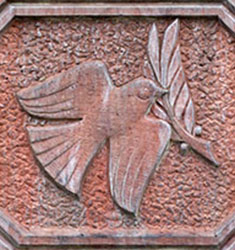Program Description
Are citizens morally obligated to vote? Are there any moral debts owed to people living in poverty across the world? Is it “right” to practice genetic modification? Applied ethics, or practical ethics, is the analysis of ethical issues such as these as they arise in real-world problems. Further, it is the study of how to manage and resolve these problems. The field of applied ethics promotes an ongoing “conversation” between the tangible—such as specific cases and pressing issues—and the theoretical. Applied ethics has many areas: bioethics, business ethics, and environmental ethics are just a few of subfields that have flourished in recent years, and all three areas are well-represented by the faculty at the University of Utah. In the applied ethics minor, students will learn how to perform ethical reasoning and analysis in their preferred area of study. The program is structured according to three broad areas of ethics: (I) Theory, (II) Applied Theory, and (III) Specific Areas of Practice. Courses covering ethics in political and public life are available, and students can also choose electives related to specific issues areas: bioethics, business ethics, engineering/environmental ethics, global/societal/political ethics, and communication/media ethics.
Academic and Career Opportunities
Students interested in involvement opportunities can join the Philosophy Club or the John R. Park Debate Society. Additional enrichment opportunities include attending the Department of Philosophy Annual Conference Series or completing an undergraduate research project or internship in a legal or other ethics-related environment. The minor will be of particular interest to students planning careers in law: critical thinking and decision-making skills and knowledge of ethical theory and reasoning are vital to attorneys and lawyers. Students can also work in one of the ethics subject matter areas—health care, for example—and bring ethical perspectives and skills to their field.





